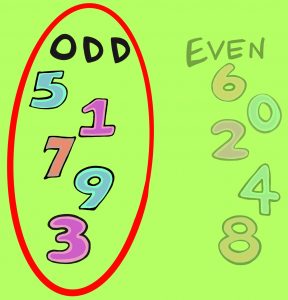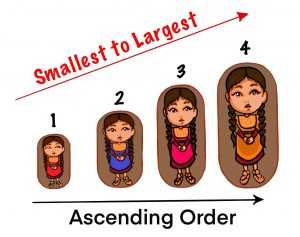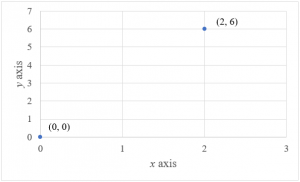O

| Object | A thing, person, or matter to which thought or action is directed [6] | pimâmeyihtam |
| Odd | mitoni pahtos |
| Odd numbers | A number that is not divisible by 2. [1] | ayacināwan |
 |
||
| One | 1 | piyak |
| Ones | The place value located one place to the left of the decimal point in a number; shows how many ones are in a number. [1] | papiyako |
| Operation (mathematical) | Procedures used to combine numbers, expressions, or polynomials into a single result (e.g., addition, subtraction, multiplication, division, exponents). [1] | oyȇyhtamȏ akihtȃsȏwin |
| + – × ÷ |
||
| Opposite | Two things that are located or facing directly across. Two opposite numbers are the two numbers that are equidistant from the origin on a number line but in opposite directions from the origin. [4] | kwiskitakitew |
| Order | To place numbers or objects in a sequential arrangement (e.g., least to greatest or heaviest to lightest). [1] | îyaskohtascikȇwin |
 |
||
| Order of operations | A specified sequence in which mathematical operations are expected to be performed. An arithmetic expression is evaluated by following these ordered steps: 1. Simplify within grouping symbols such as parentheses or brackets, starting with the innermost. 2. Apply exponents—powers and roots. 3. Perform all multiplications and divisions in order from left to right. 4. Perform all additions and subtractions in order from left to right. A common way to remember this is to use the acronym BEDMAS: Brackets, Exponents, Division, Multiplication, Addition, Subtraction. Division and multiplication (and addition and subtraction) are to be completed in the order in which they appear from left to right in the expression or equation. [1] |
oyastewaw akīcikīwina |
|
5 – (2 + 11) × 3 + 52 ÷ 4 = 5 – 13 × 3 + 25 ÷ 4 = 5 – 39 + 6.25 = – 34 + 6.25 = – 27.75 |
||
| Ordered pairs | Two numbers, in order, that are used to describe the location of a point on a plane, relative to a point of origin (0,0); for example, (2, 6). On a coordinate plane, the first number is the horizontal coordinate of a point, and the second is the vertical coordinate of the point. [3] | nāh-nāway |
 |
||
| Output | The material produced or yield; product [6] | ispayow |
| Outside | Beyond the boundary of or limits. [5] | wayawitimihk |

